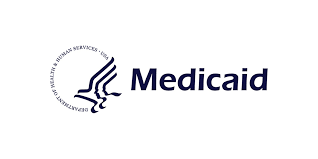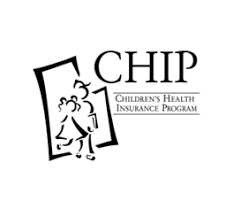In the United States, health insurance helps pay for medical charges through intimately bought insurance, social insurance, or a social weal program funded by the government. Antonyms for this operation include” health content”,” health care content”, and” health benefits”. In a further specialized sense, the term” health insurance” is used to describe any form of insurance furnishing protection against the costs of medical services. This operation includes private insurance programs and social insurance programs similar to Medicare, which pools coffers and spreads the fiscal threat associated with major medical charges across the entire population to cover everyone, as well as social weal programs like Medicaid and the Children’s Health Insurance Program, which both give backing to people who cannot go health content.
In addition to medical expenditure insurance,” health insurance” may also relate to insurance covering disability or long-term nursing or custodial care requirements. Health insurance provides different situations of fiscal protection and the compass of content can vary extensively, with more than 40 of ensured individualities reporting that their plans don’t adequately meet their requirements as of 2007.
Trends In Private Coverage
The proportion of non-elderly individuals with employer-promoted coverage fell from 66% in 2000 to 56% in 2010, also stabilized following the passage of the Affordable Care Act. Workers who worked part-time (lower than 30 hours a week) were less likely to be offered content by their employer than were workers who worked full-time.
Trends In Public Coverage
Public insurance coverage increased from 2000 – 2010 in part because of a geriatric population and a profitable downturn in the ultimate part of the decade. Funding for Medicaid and CHIP expanded significantly under the 2010 health reform bill. The proportion of individuals covered by Medicaid increased from 10.5% in 2000 to 14.5% in 2010 and 20% in 2015. The proportion covered by Medicare increased from 13.5% in 2000 to 15.9% in 2010 and also dropped to 14% in 2015.
Public Health Care Coverage
Public programs provide the primary source of content for seniors and low-income children and families who meet certain eligibility conditions. The primary public programs are Medicare, a civil social insurance program for seniors( generally persons aged 65 and over) and certain impaired individualities; Medicaid, funded concertedly by the civil government and countries but administered at the state position, which covers certain veritably low- income children and their families; and CHIP, also a civil- state cooperation that serves certain children and families who don’t qualify for Medicaid but who cannot go private content. Other public programs include military health benefits handed through TRICARE and the Veterans Health Administration and benefits handed through the Indian Health Service.
Medicare
In the United States, Medicare is a civil social insurance program that provides health insurance to people over the age of 65, individuals who are completely and permanently impaired, end-stage renal complaint( ESRD) cases, and people with ALS. Recent exploration has set up that the health trends of preliminarily uninsured grown-ups, especially those with habitual health problems, ameliorate once they enter the Medicare program.

Image Via: google
Medicaid
Medicaid was introduced for the veritably poor in 1965. Since enrollees must pass a means test, Medicaid is a social weal or social protection program rather than a social insurance program. Despite its establishment, the chance of US residents who warrant any form of health insurance has increased since 1994. It has been reported that the number of croakers accepting Medicaid has dropped in recent times because of lower payment rates. The civil government will completely fund the expansion of Medicaid originally, with some of the fiscal responsibility( 10 of medical costs) gradationally declining back to the countries by 2020.

Image Via: google
Children’s Health Insurance Program
The Children’s Health Insurance Program (CHIP) is a joint state/federal program to provide health insurance to children in families who earn too much money to qualify for Medicaid, yet cannot afford to buy private insurance.

Military Health Benefits
Health benefits are provided to active duty service members, retired service members and their dependents by the Department of Defense Military Health System(MHS). The MHS consists of a direct care network of Military Treatment Facilities and a purchased care network known as TRICARE.
Private Health Care Coverage
Private health insurance may be bought on a group base(e.g., by an establishment to cover its workers) or bought by individual consumers. Utmost Americans with private health insurance admit it through an employer-patronized program. According to the United States Census Bureau, some 60% of Americans are covered through an employer, while about 9% purchase health insurance directly.
Employer-Sponsored
Employer-patronized health insurance is incompletely paid for by businesses on behalf of their workers as part of a hand benefit package. Utmost private (non-government) health content in the US is employment-ground. Nearly all large employers in America offer group health insurance to their workers.
Small Employer Group Coverage
According to a 2007 study, about 59% of employers at small enterprises ( 3 –199 workers) in the US give hand health insurance. The chance of small enterprises offering content has been dropping steadily since 1999. The study notes that cost remains the main reason cited by small enterprises that don’t offer health benefits.
College-Sponsored Health Insurance for Students
Many colleges, universities, graduate seminaries, professional seminaries and trade seminaries offer an academy-patronized health insurance plan. Numerous seminaries bear that you enrol in the academy-patronized plan unless you’re suitable to show that you have similar content from another source.
Federal Employees Health Benefits Plan (FEHBP)
In addition to similar public plans as Medicare and Medicaid, the civil government also sponsors a health benefit plan for civil workers — the Federal Employees Health Benefits Program (FEHBP). FEHBP provides health benefits to full-time mercenary workers. Active-duty service members, sheltered service members and their dependents are covered through the Department of Defense Military Health System (MHS).
Types Of Medical Insurance
Traditional Indemnity or Fee-For-Service
Early hospital and medical plans offered by insurance companies paid either a fixed amount for specific diseases or medical procedures or a percentage of the provider’s fee.
Blue Cross Blue Shield Association
The Blue Cross Blue Shield Association ( BCBSA) is a confederation of 38 separate health insurance associations and companies in the United States. Combined, they directly or laterally give health insurance to cover millions of Americans.
Health Maintenance Organizations
A health conservation association( HMO) is a type of managed care association( MCO) that provides a form of health care content that’s fulfilled through hospitals, croakers, and other providers with which the HMO has a contract.
New Types Of Medical Plans
Limited Benefit Plan
Opposite to high-deductible plans plans which provide limited benefits—up to a low level—have also been introduced. These limited medical benefit plans pay for routine care and do not pay for catastrophic care, they do not provide equivalent financial security to a major medical plan. Annual benefit limits can be as low as $2,000
Discount Medical Card
One option that’s getting more popular is the reduction medical card. These cards aren’t insurance programs but give access to abatements from sharing healthcare providers. While some offer a degree of value, there are serious implicit downsides for the consumer.
Short Term
Short-term health insurance plans have a short policy period( generally months) and are intended for people who only need insurance for a short time period ahead longer-term insurance is attained. Short-term plans generally bring lower than traditional plans and have shorter operation processes, but don’t cover pre-existing conditions.
Health Care Sharing
A health care participating ministry is an association that facilitates the sharing of healthcare costs between individual members who have common ethical or religious beliefs. Though a healthcare-participating ministry isn’t an insurance company, members are exempted from the individual responsibility conditions of the Patient Protection and Affordable Care Act.
